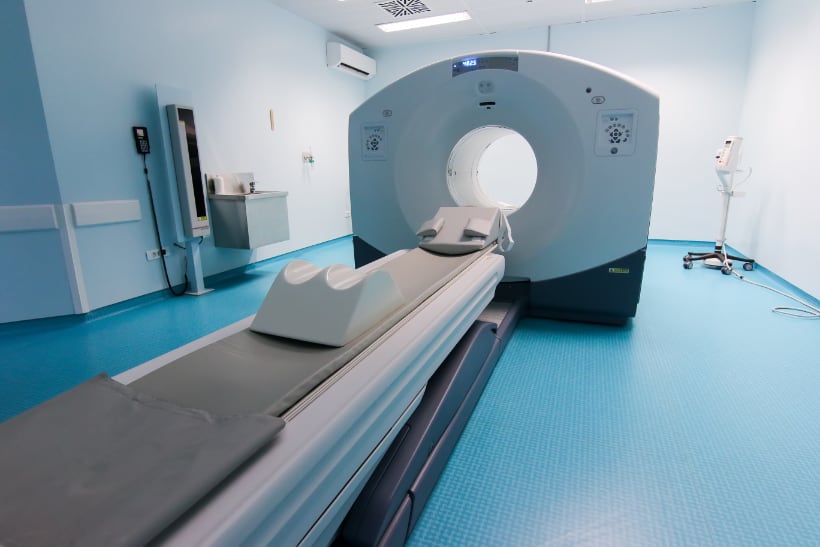By Dr Jonathan Shurlock, edited by Dr. Ahmed El-Medany
Primary aldosteronism (PA) is estimated to be the driver of hypertension in 5-10% of cases, resulting from a gene mutation causing excess aldosterone production. When recognised, unilateral adenomas can be excised surgically. Currently this option is offered to fewer than 1% of relevant patients. One of the barriers to this is the invasive nature of detection and prediction of biochemical remission and clinical resolution post-surgery. The current technique (adrenal vein sampling) has limited availability and is often unsuccessful.
A recent study in Nature Medicine has explored the potential for non-invasive testing for individuals with primary aldosteronism. Through the use of [¹¹C]metomidate positron emission tomography computed tomography (MTO) scanning, the authors sought to identify how this non-invasive test compared with adrenal vein sampling in the prediction of both biochemical remission and of resolution of hypertension, post-surgery.
128 patients were enrolled and were followed up over a 6-9 month follow-up period. 78 patients (61%) were treated surgically and 50 (39%) were managed medically. 77 patients in the surgery group achieved a successful outcome, defined as meeting one or more of the PA surgical outcome criteria (i.e reduction in BP with no increase in anti-hypertensive medication, reduction in anti-hypertensive medication without increase in BP, or home BP <135/80 mmHg on no medication).
MTO scanning was more accurate than adrenal vein sampling at predicting biochemical resolution (72.7% vs 63.6%, Mean difference 9.1% (95% confidence interval = −6.5 to 24.1%) and clinical success (65.4% vs 61.5%, Mean difference 3.8% (95% confidence interval = −11.9 to 9.4). There was not a significant difference in the accuracy of each test, though the differences fell within the pre-specified margin for non-inferiority ( P = 0.00055 and P = 0.0077, respectively). There were no serious adverse events reported that were related to either investigation.
The authors suggest that MTO scanning provides a noninvasive method for predicting successful surgical outcome for patients with primary aldosteronism, and propose this format of molecular imaging as an alternative to current testing. It is hoped that with the utility of a more available and less invasive test definitive surgical management will be more accessible to eligible patients.
See full study here: https://www.nature.com/articles/s41591-022-02114-5

